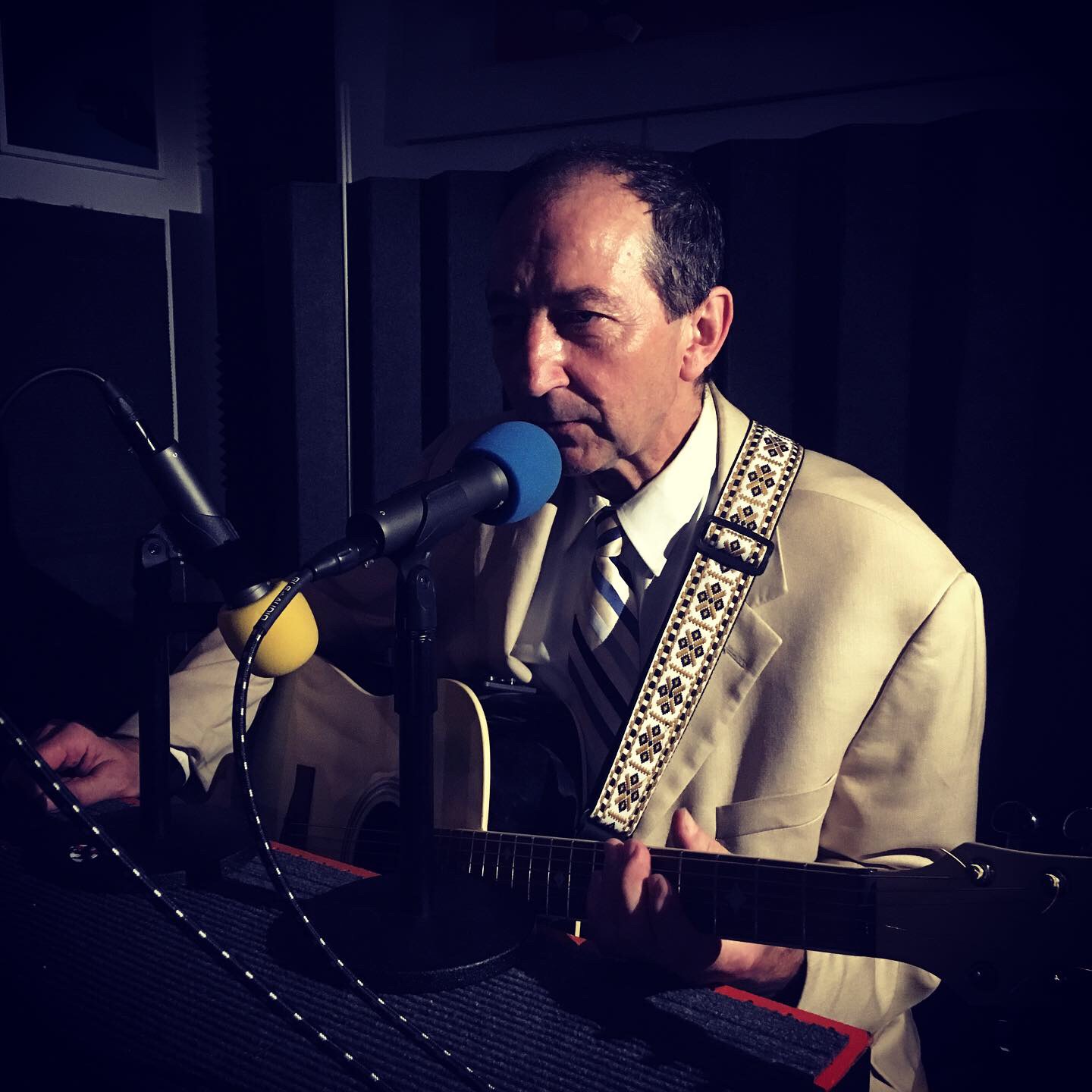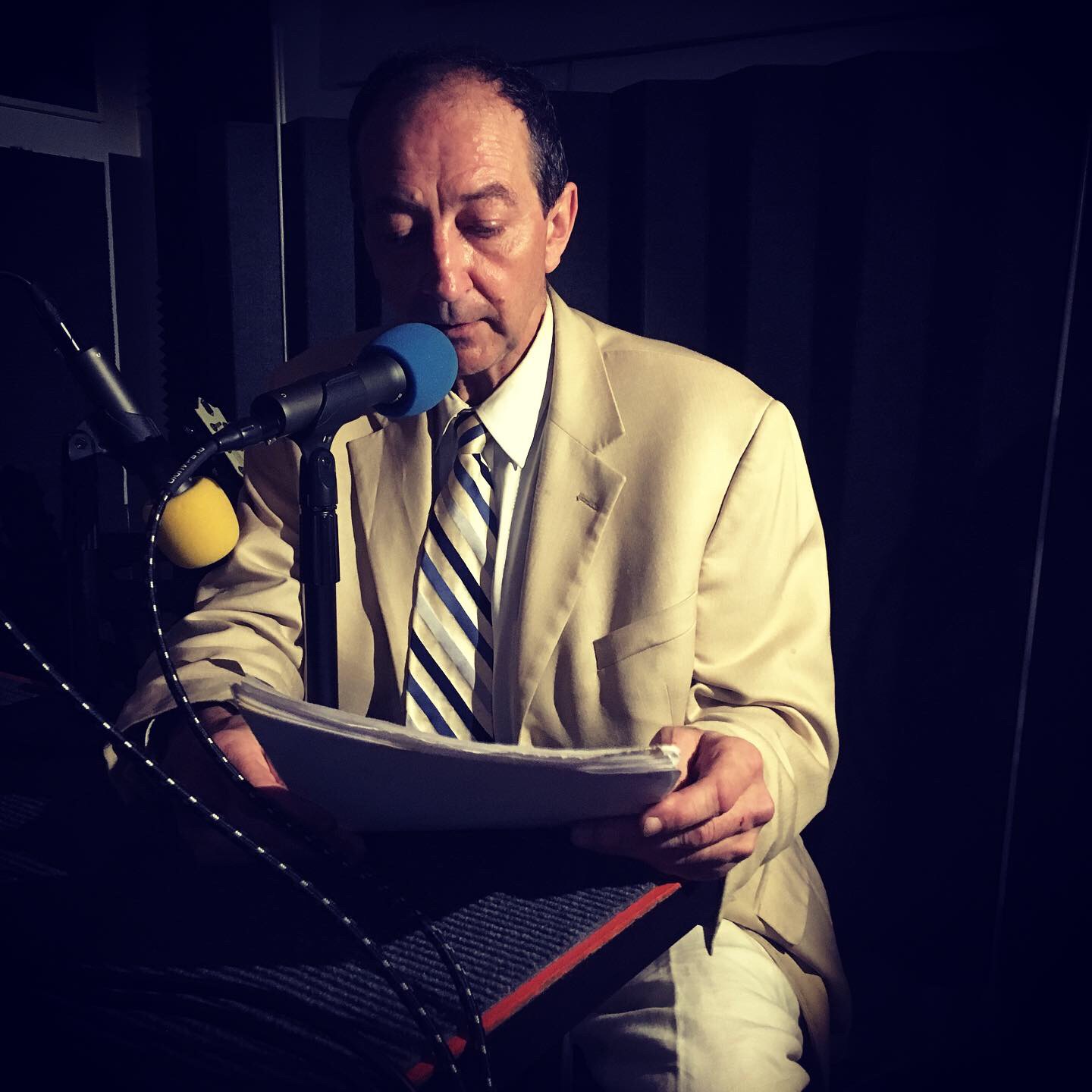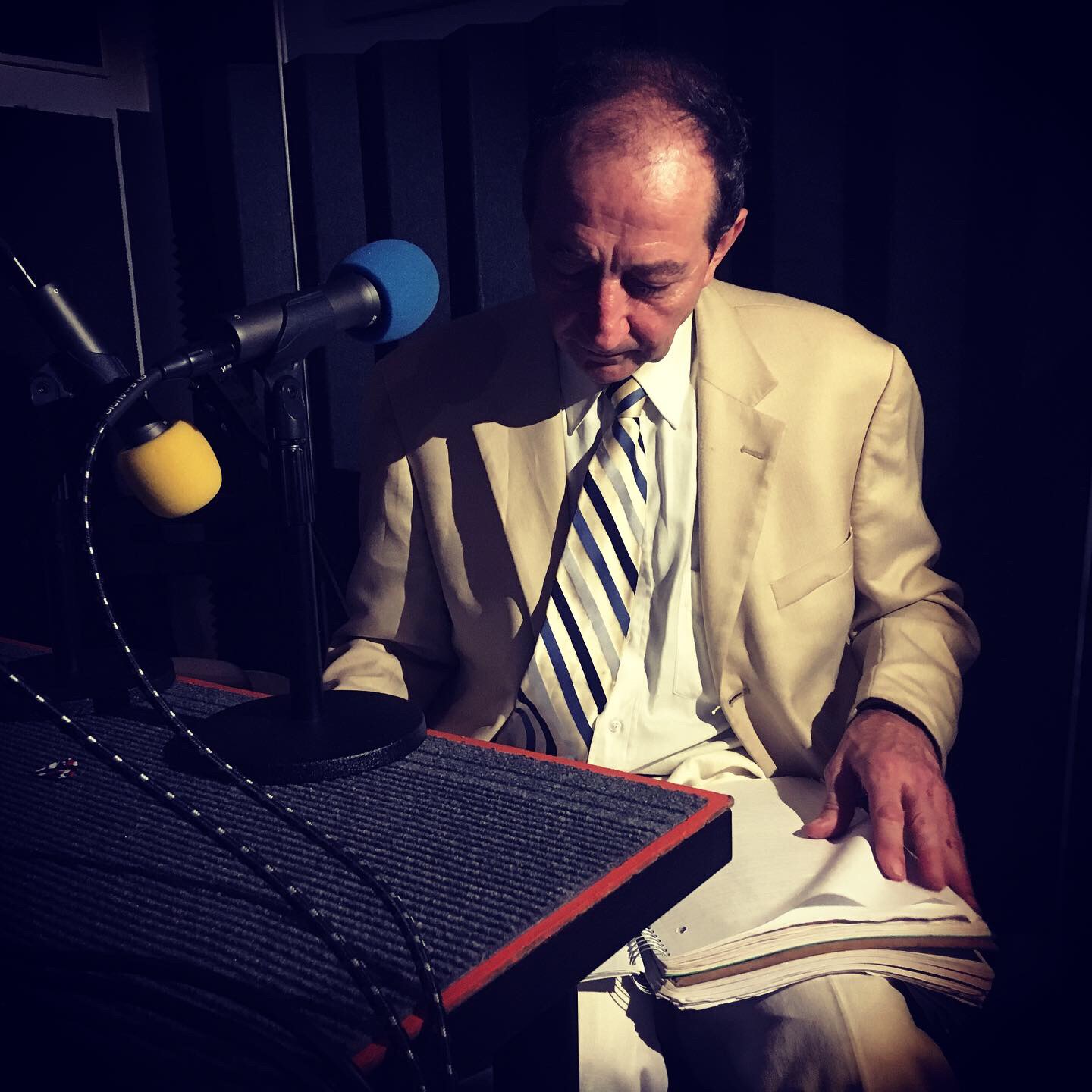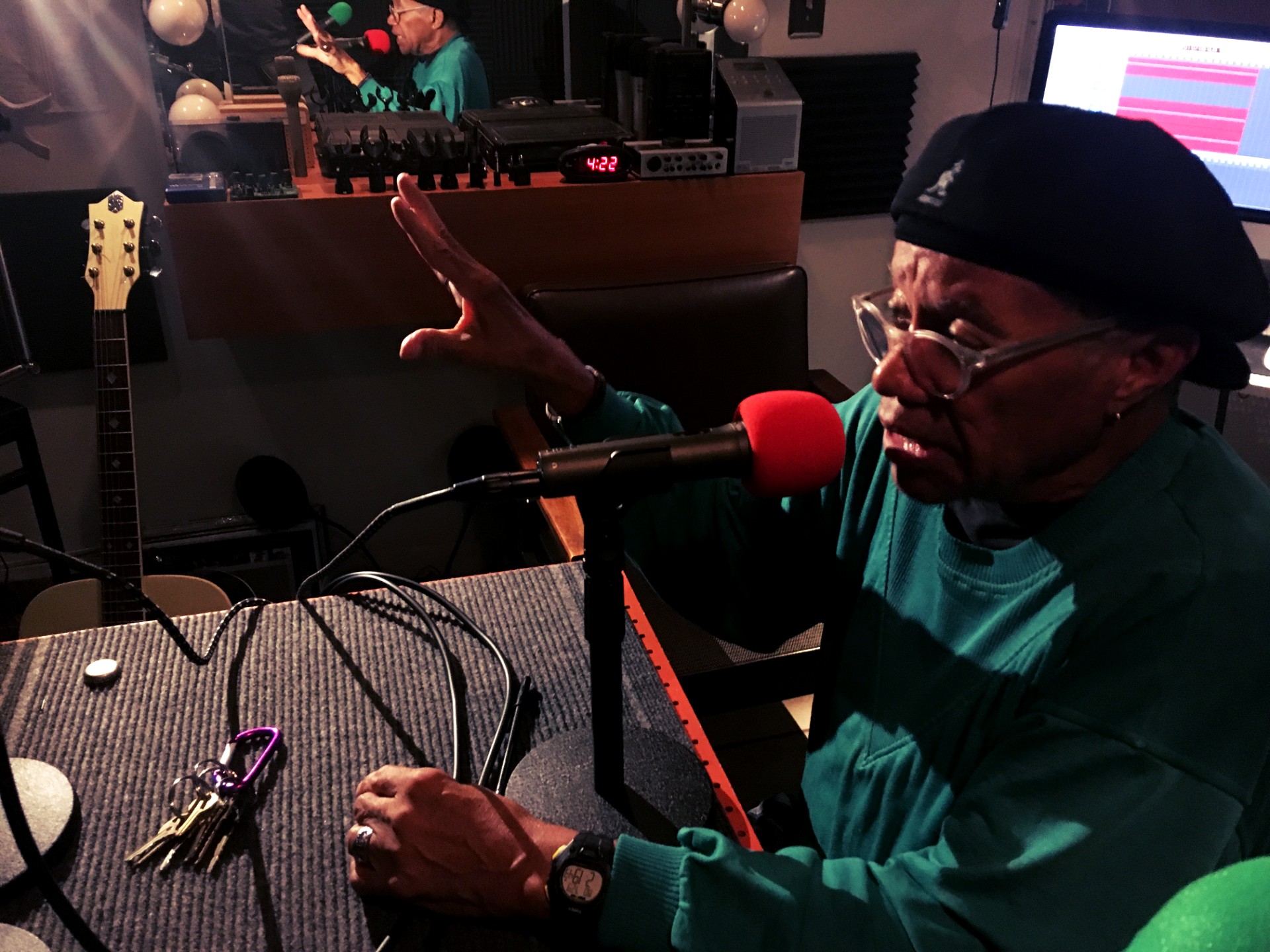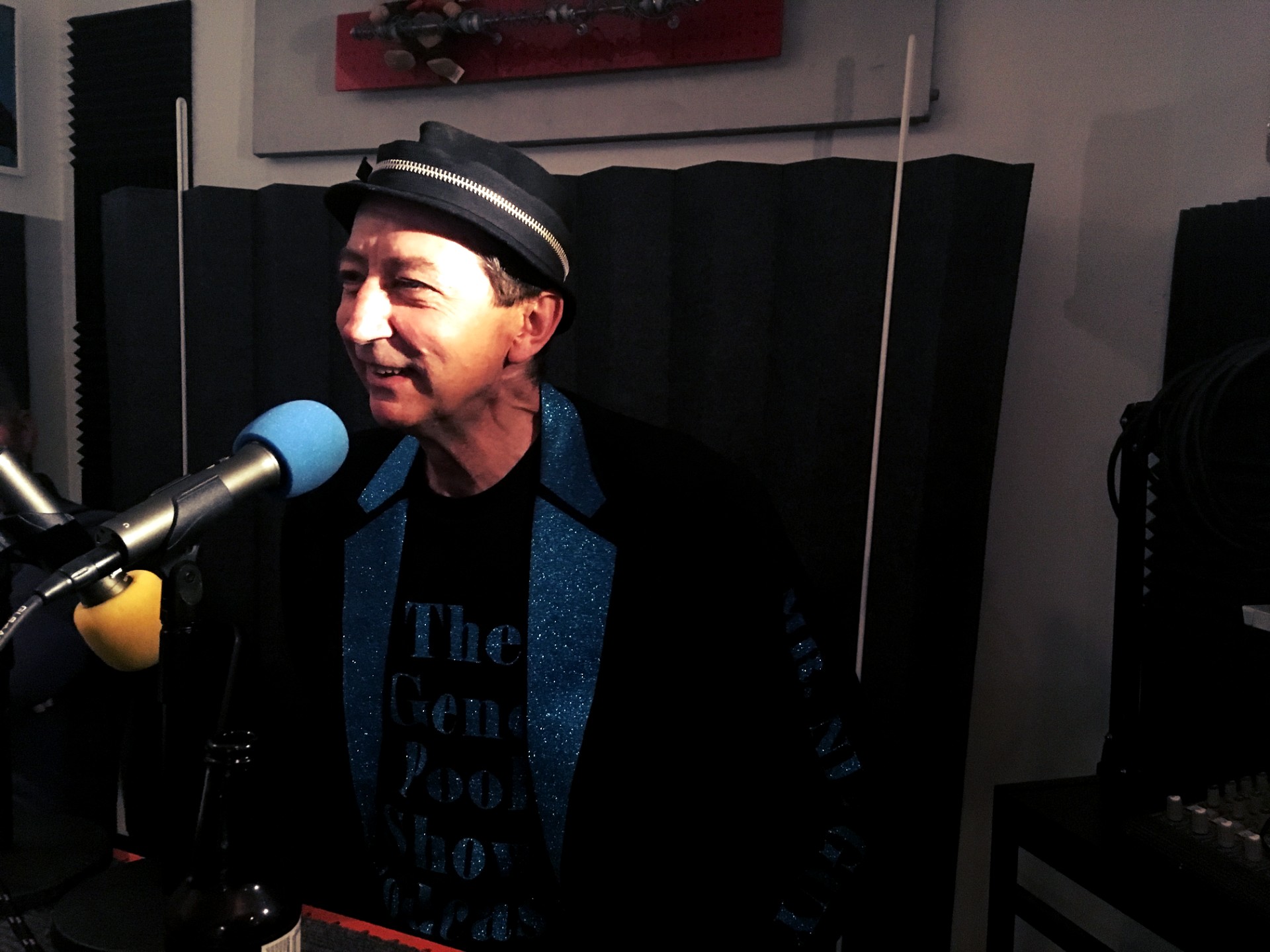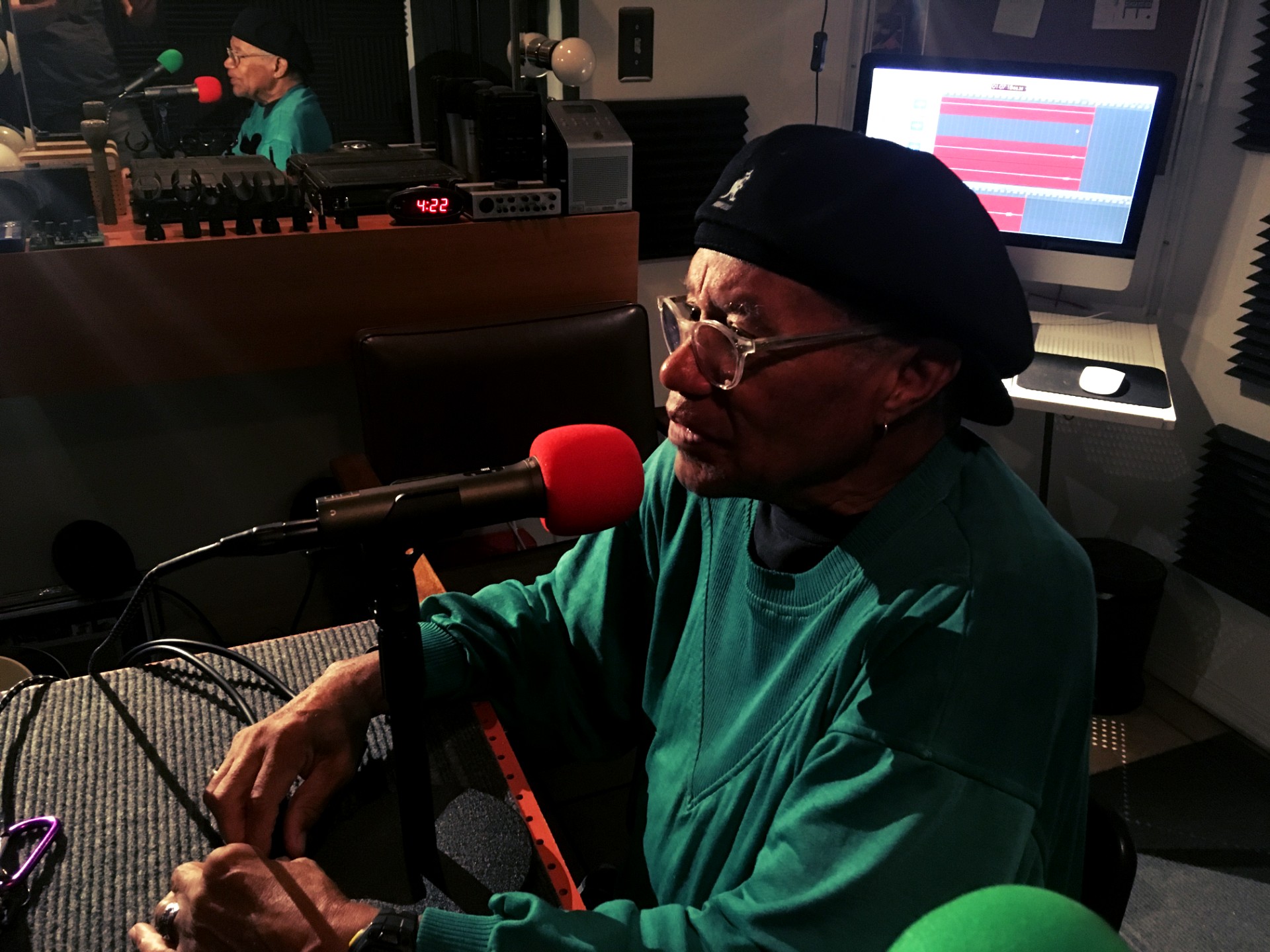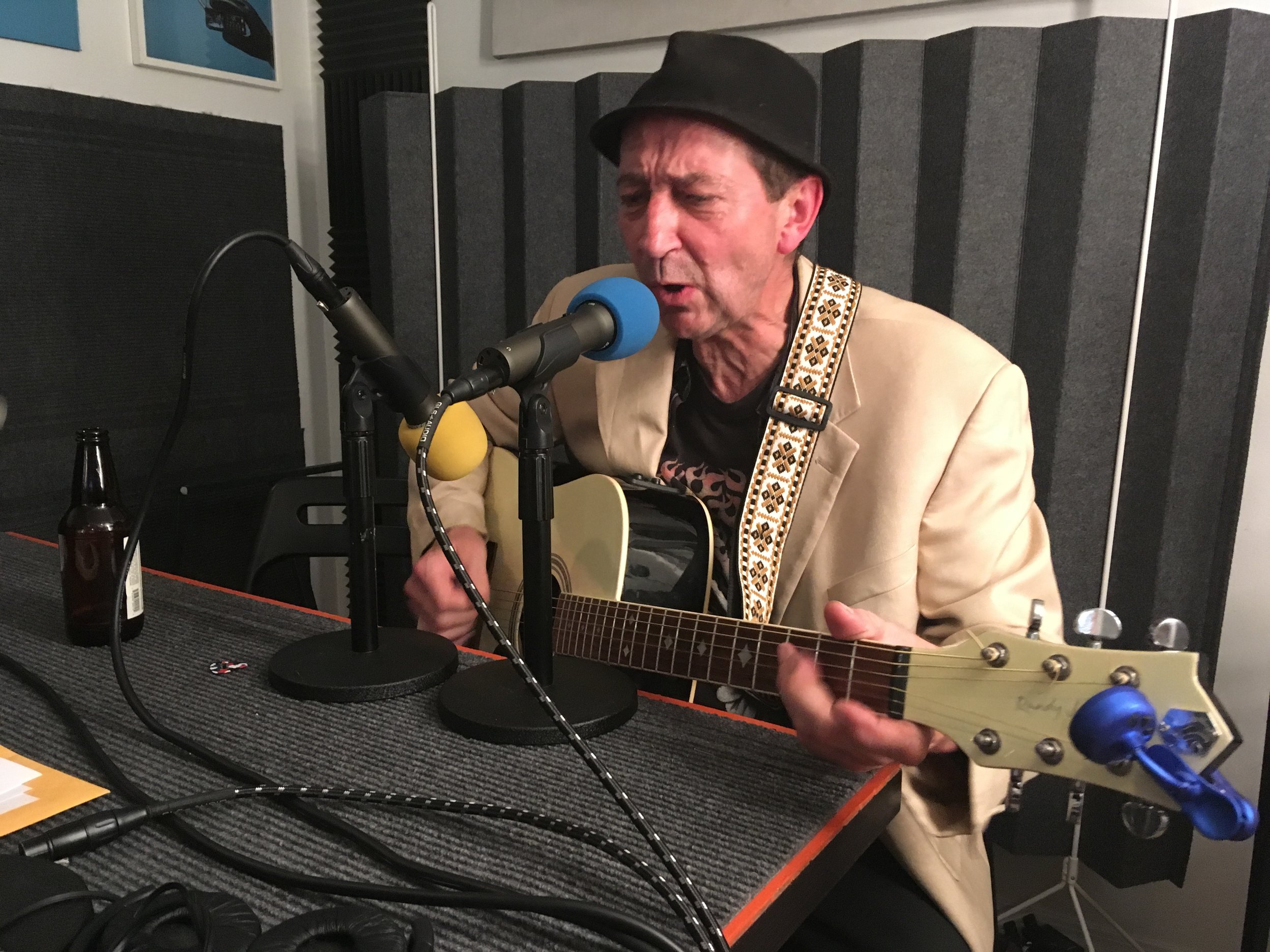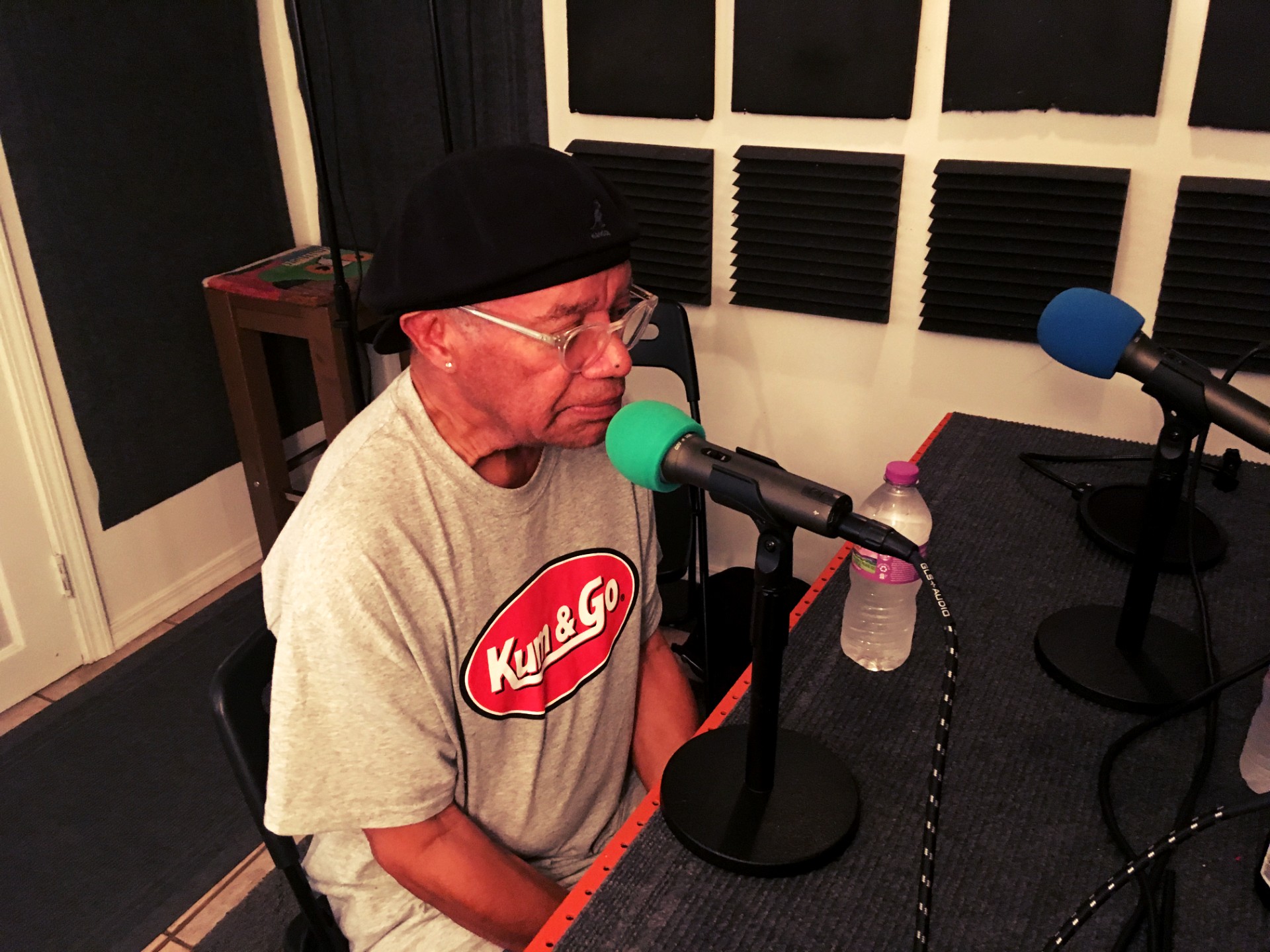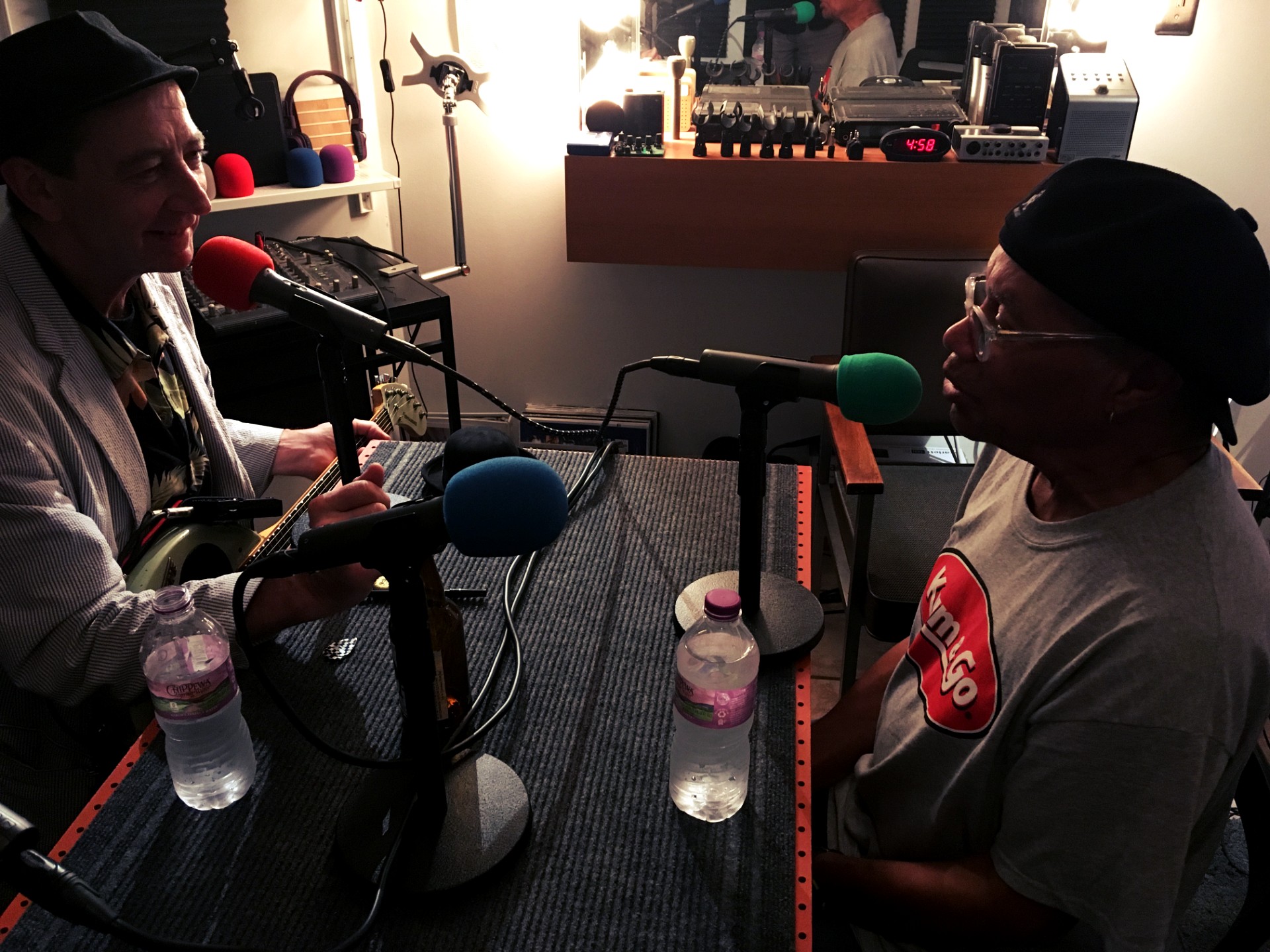THE GENE POOL SHOW
The Gene Pool Show is a podcast tour of Chicago’s Andersonville neighborhood (and beyond). It’s funny, informative, and full of heart. And it’s produced in/by Studio C. (Logo by Gene.)
CURRENT EPISODE
In this episode Gene talks to longtime Simon's Tavern jukebox curator Keith Lipinski. A native of Berwyn, Keith moved to Chicago in 1997 and started working the door at Simon's two years later. Having first been drawn to Simon's by its jukebox, he says he got a musical education from the bar's then head bartender. "When he left," Keith says, "it all the sudden came upon these shoulders to take care of the jukebox." He tells Gene that he felt a little overwhelmed by the job at first, but after a few weeks things "smoothed out" when patrons recognized that he knew what he was doing. In time, that recognition would come from the Chicago Reader's Best of Chicago poll, which has given Simon's best jukebox honors four times. Keith says he was always a big music fan, remembering that "in college times, when friends of mine were going on dates or doing drugs, I was just listening to a lot of great music and hanging out at a lot of great record stores in Chicago, picking up as much music as possible." Going back further, he says MTV raised him, "and that also helped my musical education and pedigree." Keith talks about his approach to stocking Simon's CD jukebox with "a little bit of everything" and how he thinks of it as his third kid. "And I had the juke before I had either of the kids, so they should know the pecking order," he jokes. He now works at the bar only about once a month but is still drawn to the "Simon's room.” “It's hard to describe,” he says, “but it's almost like magic to me, where if you have the perfect song going on at the perfect time, it's really, really good."
S U B S C R I B E
ABOUT GENE POOL
Protagonist, poet and now podcast host, Gene Pool Harding is known for his 5,000 Bottle Cap Suit and his Zebra Suit. He was a guest on “The Tonight Show” with Johnny Carson, becoming the first performance artist to appear on the show, and soon after had a cameo in David Byrne’s movie True Stories. Throughout the 1990s Gene appeared on the streets of Manhattan riding a unicycle and wearing a suit of beer cans; he functioned as an unofficial mascot for curbside recycling, which the city instituted a decade later. During that time he appeared in a can suit riding a unicycle on “Live! with Regis and Kathie Lee,” where Regis wore one of his grass suits. More recently, he’s been seen on “The Steve Harvey Show” in a bottle cap suit. His screen credits also include Natalie Merchant’s “Kind and Generous” music video and the feature films Searching For Bobby Fischer and Mike Figgis’ One Night Stand. On top of that, he’s the author of a memoir, a coloring book, a book of drawings, and more than 3,000 poems. His recent featured set at Chicago’s Green Mill was a huge success. He lives in Chicago.
EPISODE ARCHIVE
On Episode 6 Gene talks to Marc Kelly Smith, founder of the world-famous Uptown Poetry Slam. Smith talks about the event's humble beginnings at the now-defunct Get Me High Lounge in Wicker Park. At that time, poetry readings were sparsely attended. "If you had 10 people, you were successful," Smith recalls. But there was another problem: "They were all so very self-indulgent, snobbish, cliquish. Here's this passionate art form and everybody is presenting it very boring, like a professor in class." Inventing the event as he went along, Smith looked for poets "with a natural flair for performing," though, at the time, he says, "poets did not take performance seriously." Smith believes that pairing poetry with performance "created a higher art form." In the summer of 1986, Smith's event moved to its current home, the Green Mill, when the historic Uptown tavern was reopened by Dave Jemilo. There Smith transferred everything he had learned at the Get Me High and watched the poetry slam grow from five people showing up to "nights with 80 people in the audience." In time, the slam became not only a beloved Chicago institution but a worldwide phenomenon, playing to audiences of hundreds in Europe and Asia. Despite having always kept his "private life pretty private," Smith opens up to Gene, relating stories of his "extreme love-hate relationship with the stage" and struggles he’s had with stage fright. He also touches on his time growing up on Chicago's "blue-collar" Southeast Side, where he discovered his "knack for writing" -- despite not having attempted to read a book until the seventh grade. That book, recommended to him by a teacher, changed his life.
Episode 5 finds Gene in a more ruminative place, talking to Studio C's Andy Miles about his mental health struggles, specifically his coming to terms with a bipolar disorder diagnosis after spending a week in a Brooklyn psych ward. That helped motivate his decision to "get the hell out of Brooklyn" and settle for a time in an Ohio farm house. He started writing poems as a way to recover from those tumultuous times and has never stopped writing; at last count he has penned about 2,000 poems, several of which he reads in the episode. "The land my mind lives in is treacherous but friendly," he says in one of them. Gene also tells the story of his bottle cap, zebra and Mr. Nice Guy suits and performs one of his all-time favorite songs, calling it a "flawless work of art."
In this fourth episode of The Gene Pool Show, Gene tells (another part of) his life story to Studio C's Andy Miles, and performs one of his songs. He talks about moving to Chicago in 1983, and to "desolate" Williamsburg, Brooklyn in 1989, at a time when "you could not pay someone to come to a party from Manhattan." While living there, Charles Mingus' daughter connected him to Rolling Stone cover photographer Mark Seliger. Gene colorfully reminisces about the work he did assisting Seliger on photo shoots of Seinfeld's Michael Richards, the singer Beck, and actors Leonardo DiCaprio and Drew Barrymore. Later Gene had a role riding his unicycle as a bald clown in the Seliger-directed Natalie Merchant video "Kind and Generous." He tells the story of how he learned to ride the unicycle he found in the garbage and how he came to be known as the can man, wearing a suit made of beer cans to promote the cause of curbside recycling in New York City. The can suit brought him local fame, landing him in the pages of New York magazines and, once, in police custody; late in the episode, he tells that story.
In this podcast extra, Gene tells the story of his 1976 Volare station wagon with the plastic rocking horse and flashing yellow light on the roof. By "complete happenstance" that car made an appearance in the film "Basquiat," and allowed him to pull a prank on unsuspecting couples.
Episode 3 features Gene’s second interview with Ty Hanson, a drummer and trombonist who played with Frank Sinatra, The Jackson 5, James Brown, and many more. In this conversation (scroll down to Episode 1 for Part 1), Ty reminisces about backing Little Richard, whom he calls "nice enough" but a "hard pill to swallow," contrasting the rock 'n' roll legend's difficult-to-please demeanor with the graciousness of New Orleans legend Dr. John. He relates the story of Chuck Berry and Jerry Lee Lewis arguing one night over who was the better rock 'n' roller, taking their heated dispute out to the alley (Hanson declines to say who prevailed). He remembers James Brown's penchant for fining the musicians in his band, reducing their night's pay for on-stage infractions, and how the Godfather of Soul was all "about the business," maintaining a social distance from members of his band. Hanson also reveals the one thing that made him lose respect for Ike Turner. Late in the interview, Gene asks Ty about his decision to retire from the business; music put years on you, Hanson says, until you become "like an old leather jacket."
In this second episode of The Gene Pool Show, Gene (previously known as Bill Harding) tells (part of) his life story to Studio C's Andy Miles, and plays three of his songs. He talks about his recent featured set at the Green Mill's poetry slam, his work producing grass suits and grass cars and how that landed him in newspapers around the world, on "The Tonight Show" with Johnny Carson, the Canadian TV show "Claim to Fame," where he shared billing with the female pig wrestling champion of North America, and a Japanese show watched by 33 million people on New Year's Day 1983. In 1985 he got a call from David Byrne's wife, Adelle Lutz, asking him to come down to Plano, Texas, to grow some grass suits for the film "True Stories," which he made a cameo appearance in and crafted costumes for with David Byrne's dad. During the filming of “True Stories,” Gene met Pops Staples, who had a co-starring role in the movie; he calls that meeting one of the pivotal moments of his life and their ensuing friendship a “very important part of my evolution.”
Episode 1 features Gene’s conversation with Ty Hanson, a musician who played with Frank Sinatra, The Jackson 5, James Brown, and many more. Hanson, 76, was a drummer and trombonist, and got his start on the so-called Chitlin Circuit, “a collection of performance venues throughout the eastern, southern, and upper midwest areas of the United States that provided commercial and cultural acceptance for African-American musicians, comedians, and other entertainers during the era of racial segregation in the United States” (source: Wikipedia). He says he played 355 straight days with B.B. King, touring the Jim Crow South on a bus and remembering the blues legend as “quite the gentleman.” Hanson credits his mother, a jazz singer, with inspiring him to take up the drums at age 12, and his wife and best friend, Cheryl, for helping him reach “certain pinnacles of music and life itself,” calling her “a great voice in his success.” (Cheryl was on hand for the interview but remained off mic.)









